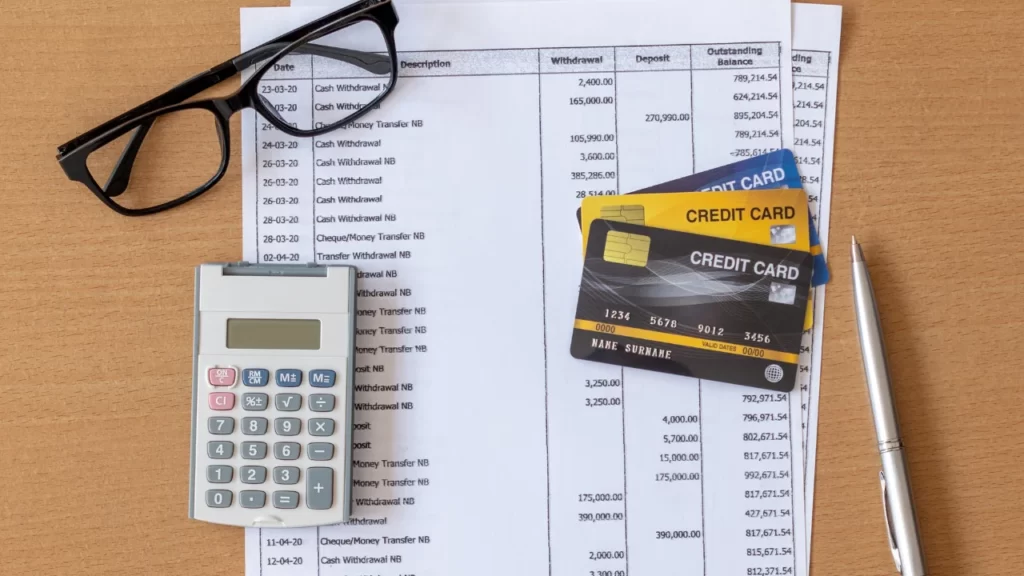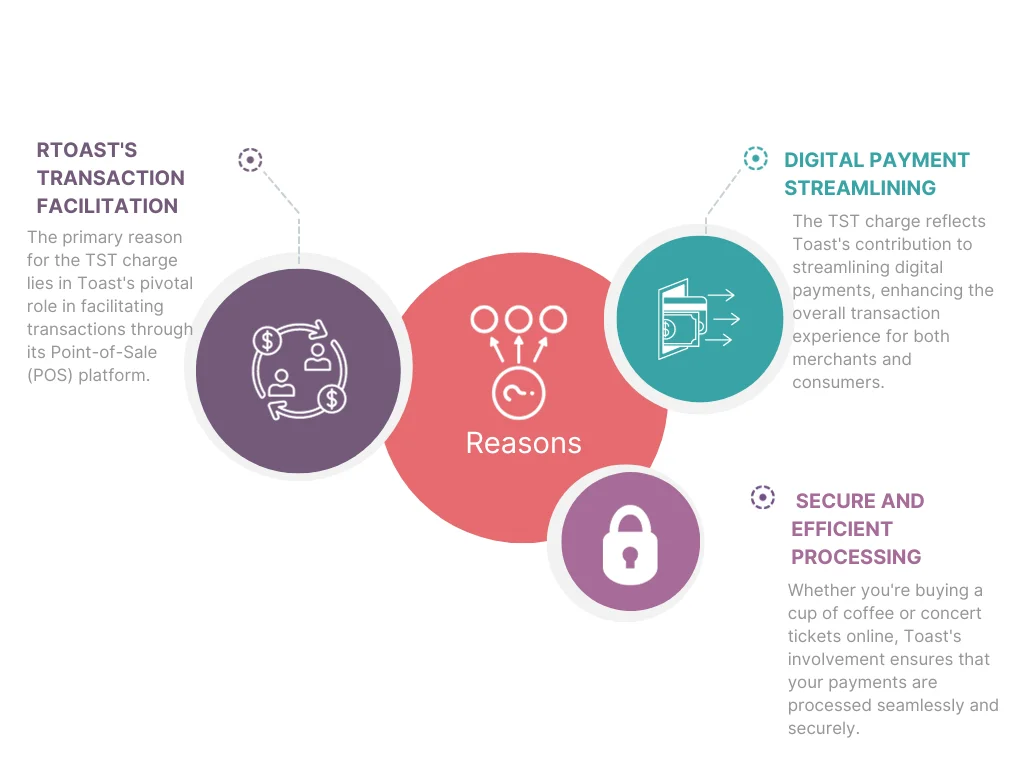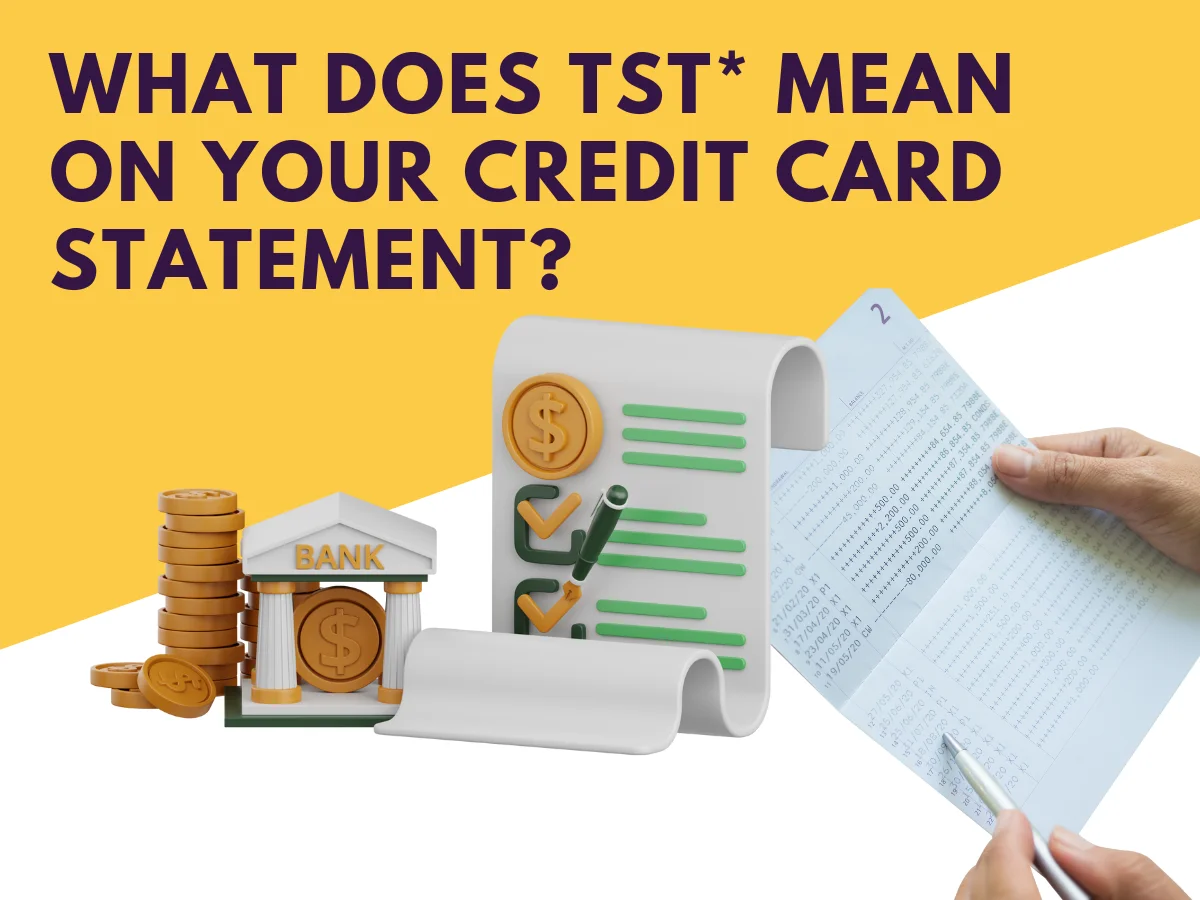If you’ve ever glanced at your credit card statement and spotted a mysterious charge labeled “TST*,” you’re not alone. In this comprehensive guide, we will delve into the depths of credit card transactions, demystifying the TST* charge, and providing practical examples to ensure you understand every aspect.
“TST* on a bank statement usually stands for a test transaction. It’s commonly used by banks to verify the functionality of a payment system or card, often appearing temporarily before the actual transaction is processed.”
What does TST* mean?
TST* on your credit card statement is not a cause for alarm. It represents a processing fee charged by Toast, Inc., a prominent payment processor offering point-of-sale (POS) services for various businesses. For instance, imagine you recently enjoyed a delightful dinner at your favorite local restaurant. The TST* charge reflects the transaction fee incurred by the restaurant for using Toast’s payment processing platform.
TST on Credit Card Statement
The TST charge is a legitimate transaction fee applied to each purchase made through merchants utilizing Toast’s payment processing platform. Consider a scenario where you grab your morning coffee at a trendy café. The TST* charge on your statement is a result of the café’s reliance on Toast for processing your card payment.
What does TST mean on a credit card?*
TST* stands for the transaction fee incurred by Toast. This fee can vary based on factors like transaction type, purchase amount, and location. Suppose you recently purchased at a local bookstore. The TST* charge on your credit card statement represents the fee Toast deducted for processing that particular transaction.

How does TST appear on the credit card statement?
On a credit card statement, a TST charge typically appears with a clear identifier, allowing cardholders to trace its origin. The display format may include variations such as “TST*,” “TST*PG,” “CR CNS TST,” or simply “TST.”
Suppose you recently dined at a restaurant that utilizes Toast, Inc.’s payment processing platform. The transaction may show up on your credit card statement as:
- Merchant Description: XYZ Restaurant
- Transaction Amount: $50.00
- TST Charge: TST* $1.50 (or a percentage of the transaction amount)
In this scenario, the TST charge is explicitly linked to Toast’s transaction fee, clearly detailing the processing cost incurred by the restaurant for utilizing Toast’s services. The itemized statement allows cardholders to discern the specific fee associated with the TST charge, providing transparency in financial records.
How do I know where my credit card charges came from?
To trace your credit card charges effectively, check the merchant code or description on your statement. Imagine you’ve made a unique purchase at a boutique store. Checking the merchant code reveals that the TST* charge is associated with the boutique, allowing you to identify the transaction leading to the TST* charge.
Why is there a charge on my card?
The TST charge is not a cause for concern; rather, it is a result of the payment processing intricacies involving Toast, a reputable payment processor. it is a result of the payment processing intricacies involving Toast, a reputable payment processor.
1. Toast’s Transaction Facilitation:
The primary reason for the TST charge lies in Toast’s pivotal role in facilitating transactions through its Point-of-Sale (POS) platform. When you utilize your credit card for a purchase, especially in establishments like restaurants or cafes, the TST charge signifies Toast’s transaction fee to ensure a smooth payment process.
2. Digital Payment Streamlining:
In the age of digital payments, Toast’s POS platform is widely adopted by businesses seeking efficiency. The TST charge reflects Toast’s contribution to streamlining digital payments, enhancing the overall transaction experience for both merchants and consumers.
3. Secure and Efficient Processing:
Consider the TST charge as a fee for the secure and efficient processing of your transactions. Whether you’re buying a cup of coffee or concert tickets online, Toast’s involvement ensures that your payments are processed seamlessly and securely.

What are the transactions on a credit card statement?
Credit card statements include a list of transactions, detailing purchases, fees, and other financial activities. Suppose you recently booked a weekend getaway. Understanding each entry, including TST*, ensures transparency in your financial records, allowing you to track and manage your expenses effectively.
Why don’t I recognize the TST charge?
While Toast is a reputable company, unfamiliar TST charges may be due to holds placed before authorizing a purchase. These holds, typically small amounts, verify your payment method’s validity. If you recently made a hotel reservation, these holds might appear as preliminary charges before the actual transaction goes through. If unrecognized charges persist, report them to your credit card issuer and Toast for investigation.
How to Prevent Unauthorized TST Bank Charges
- Review Your Statements Regularly
Regularly check your bank statements. Suppose you spot TST charges you don’t recognize after a recent online shopping spree. Take immediate action by contacting your bank or credit card company, ensuring prompt resolution.
- Protect Your Payment Information
Safeguard your account and personal information. Avoid sharing sensitive data with untrusted sources. For instance, if you’re signing up for a new online service, ensure it’s a reputable platform like Amazon or Netflix. Enable alerts on your accounts for unusual transactions, like an unexpected purchase from an unfamiliar website.
- Check the Merchant
Before using a merchant’s services, research and verify their legitimacy. Suppose you’re considering purchasing handmade crafts online. Check for reviews, credentials, and their use of reputable payment processing services. A trustworthy merchant will likely use well-known platforms like PayPal.
- Monitor Your Credit Score
Regularly monitor your credit score for unauthorized transactions. Any suspicious activity should be reported promptly. Suppose you notice an unexpected drop in your credit score after using your card at a gas station. Report it immediately to prevent further fraudulent activity.
Tips for Handling Unknown TST Credit Card Transactions
Handling unknown TST transactions requires a proactive approach:
- Understand TST Charges: TST charges are associated with Toast’s payment processing. Familiarize yourself with the merchant codes and descriptions on your statement. Suppose you find a charge labeled TST* RST, understanding Toast’s association clarifies its legitimacy.
- Communication is Key: If encountering unfamiliar TST charges, communicate with your credit card issuer and Toast for clarification and resolution. Imagine you recently purchased tech gadgets online, and a TST* charge appears. Contacting both your card issuer and Toast ensures a thorough investigation into the legitimacy of the charge.
Conclusion
Understanding the nuances of TST* charges on your credit card statement ensures financial transparency and peace of mind. As we’ve demystified the origins of TST* charges linked to Toast’s transaction fees it becomes clear that these charges are legitimate and a byproduct of secure payment processing. By reviewing statements regularly, safeguarding personal information, and promptly addressing unfamiliar charges, you empower yourself to navigate the digital payment landscape confidently. Stay vigilant, stay informed, and enjoy hassle-free financial transactions.
Read to know How Does Uber Show Up on Bank Statement?
